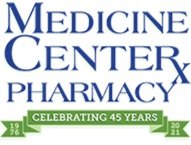Personalized Compounding Options for Weight Management Support
Medications containing semaglutide have become well-known for their use in certain FDA-approved injectable products prescribed for type 2 diabetes and, more recently, weight management. These approved medications have undergone formal clinical testing and FDA review for safety and efficacy.
However, there are situations where an FDA-approved product may not be available, suitable, or tolerated by a specific patient. In those cases, a licensed healthcare provider may consider prescribing a compounded preparation made by a state-licensed pharmacy to meet that individual’s unique needs.
Understanding Semaglutide
Semaglutide belongs to a class of medications called GLP-1 receptor agonists, which act on naturally occurring receptors involved in blood sugar regulation and appetite signaling.
While FDA-approved semaglutide products are available only as injectables or tablets, some prescribers may request a custom compounded formulation—such as a sublingual suspension—when clinically appropriate for a particular patient.
These compounded versions are not FDA-approved and have not been evaluated for safety, effectiveness, or bioequivalence to commercially available products. They are prepared by licensed compounding pharmacies under a prescriber’s individualized direction.
What “Compounded” Means
Compounding is the art and science of preparing customized medications to meet the unique needs of individual patients. This process can include adjusting dosage strengths, changing dosage forms (for example, from injection to sublingual), or removing allergens or ingredients that a patient cannot tolerate.
Compounded medications are made in response to a valid prescription for a specific patient, using ingredients sourced from FDA-registered suppliers, and following quality standards such as those outlined in USP <795>.
Sublingual Administration
In some compounded prescriptions, semaglutide may be prepared as a sublingual (under-the-tongue) or buccal (in the cheek) suspension. These forms are placed in the mouth and allowed to absorb through the mucosal tissues. Sublingual administration can be considered by a prescriber for patients who cannot or prefer not to use injections.
The base used in such preparations, such as SubMagna® HMW, is a specialized suspension vehicle designed to help disperse the active ingredient and maintain contact with the oral tissues. This vehicle does not make the medication FDA-approved, but it provides compounding pharmacists with a tool to prepare customized prescriptions when requested by a licensed provider.
Learn More
Ask a Pharmacist ↓
Working With Your Healthcare Provider
At Medicine Center Pharmacy, we collaborate closely with healthcare providers across Ohio and Pennyslvania to support individualized care. When a prescriber determines that a compounded medication is appropriate, our PCAB-accredited Non Sterile Compounding lab prepares it according to that prescription’s specific directions.
Our pharmacists are available to answer general questions, provide educational information about compounded medications, and help facilitate communication between patients and their healthcare teams.
Our Commitment to Quality and Safety
Medicine Center Pharmacy’s compounding practices adhere to the highest quality standards, including:
Use of FDA-registered active pharmaceutical ingredients (APIs)
Preparation in a PCAB-Accredited compounding facility
Compliance with applicable USP guidelines
Ongoing collaboration with prescribers to ensure patient-specific needs are met
Important Disclaimers:
Compounded medications are not reviewed or approved by the U.S. Food and Drug Administration (FDA) for safety, efficacy, or quality.
They should only be used when a licensed prescriber determines that an FDA-approved medication is not suitable for a particular patient.
Compounded semaglutide products are not the same as, nor interchangeable with, FDA-approved semaglutide medications.
This information is provided for educational purposes only and is not a substitute for medical advice, diagnosis, or treatment.


